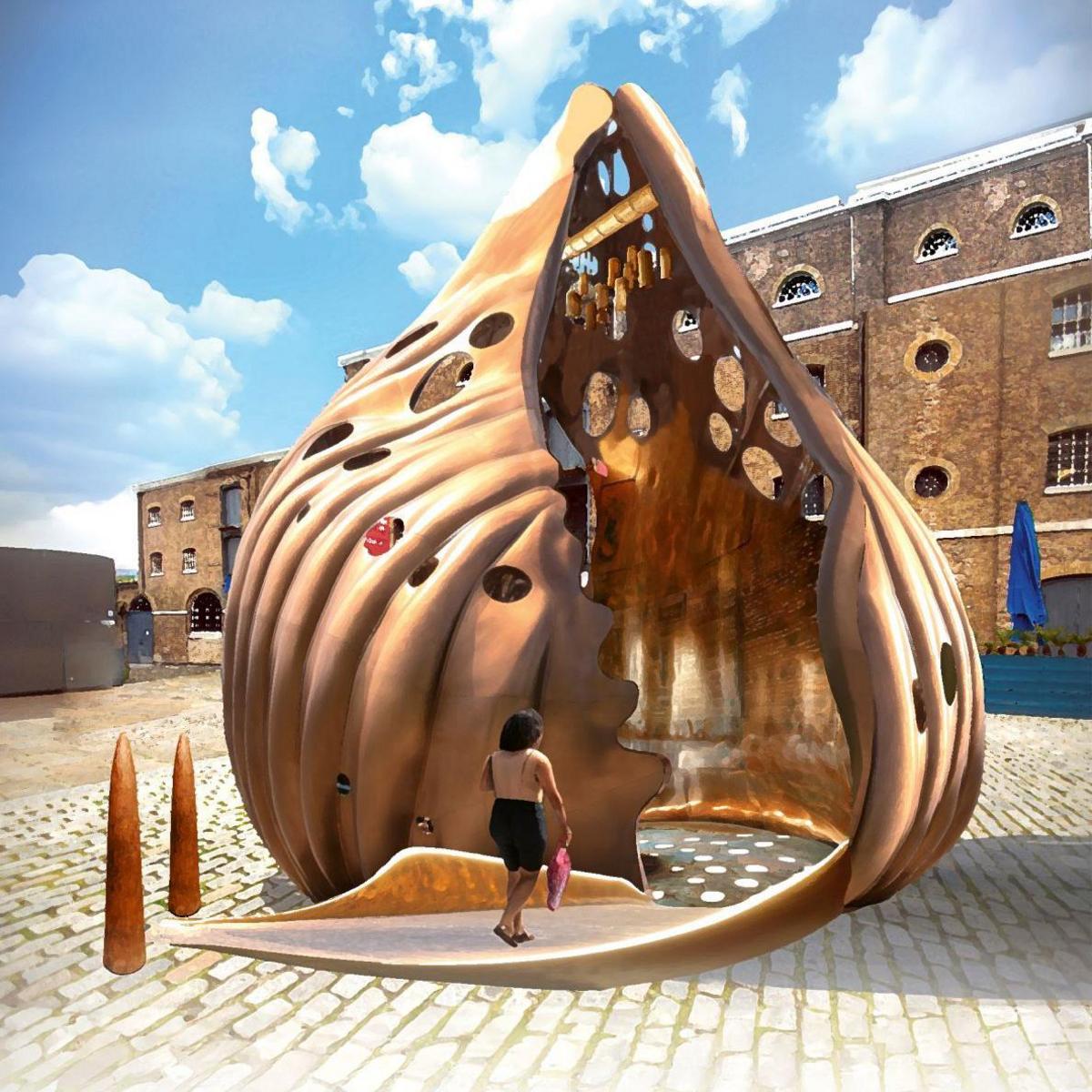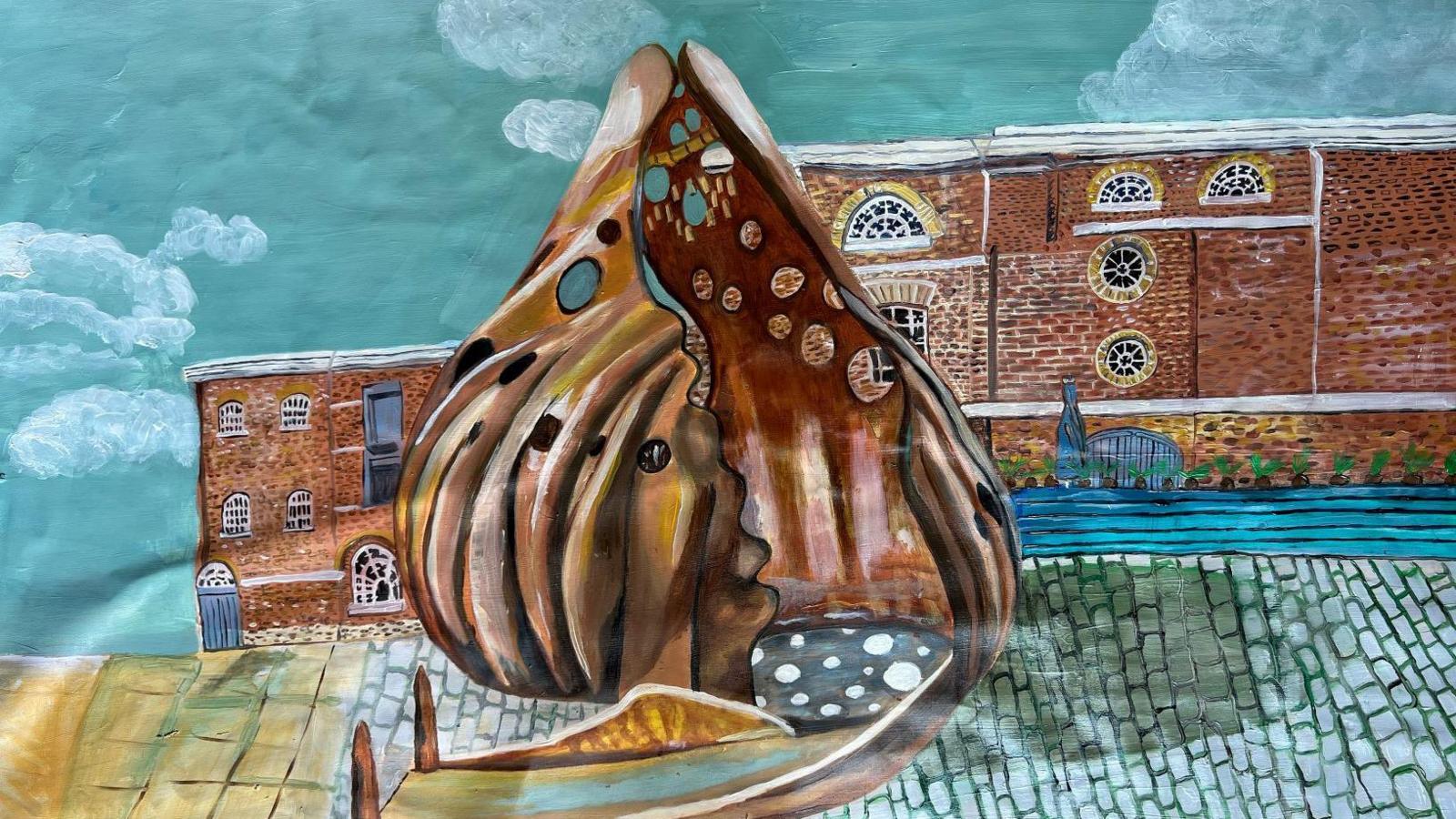Cowrie shell chosen for Docklands slavery memorial

Sadiq Khan said The Wake is "a stark reminder of the pain and suffering caused by transatlantic slavery and the role the UK and London played"
- Published
A 23ft (7m) tall bronze cowrie shell has been chosen as a London memorial to the victims of the transatlantic slave trade.
The Wake, by Khaleb Brooks, "reclaims the cowrie shell as a symbol of resilience, creating a space for contemplation and reflection", a statement by the mayor of London's office said.
Sadiq Khan, who has earmarked £500,000 for the artwork, said it was important public spaces reflected the heritage of the capital.
The piece will be located in West India Quay in London Docklands, east London, which is an area historically linked with the slave trade.

The Wake is a remembrance vessel where rest and refuge are possible, the artist previously said
Mr Brooks said he felt "honoured" to have his work chosen and called the sculpture "a space of memory, belonging, hope and care".
"The Wake is an opportunity for us to not just acknowledge the victims of the trade, but to honour how far we’ve come and actively engage in the current necessity for social change," he said.
"Through honouring, grieving, healing and learning about those who faced the horror of slavery before us, we make a conscious effort to engage the liberatory ethics that sought an end to the trade."
Shortlist announced for Docklands slavery memorial
- Published6 June 2024
Memorial for victims of slave trade to be erected
- Published24 March 2023
The final design for the memorial was chosen by a panel of experts from the art industry, academia and public realm alongside stakeholders.
The announcement comes after the public were invited to vote for their favourite design from a shortlist of six proposals - with The Wake being voted as the favourite.
Panel member Douglas Gilmore, managing director at London Museum Docklands, said the piece was "a deserved winner" which would "bring long needed diversity into our public realm and help to ensure it reflects all parts of our history".
The mayor's office said cowrie shells "hold cultural and spiritual significance, but became a stark symbol of slavery and the exploitation of human life as currency".
Mr Khan added the work was "a stark reminder of the pain and suffering caused by transatlantic slavery and the role the UK and London played".
The announcement was made on the Unesco Day for Remembering the Transatlantic Slave Trade and its Abolition.
The sculpture is set to be unveiled in 2026, and there are also plans to install a number of smaller shells at other locations in the capital with connections to the trade of enslaved people.
Listen to the best of BBC Radio London on Sounds and follow BBC London on Facebook, external, X, external and Instagram, external. Send your story ideas to hello.bbclondon@bbc.co.uk, external